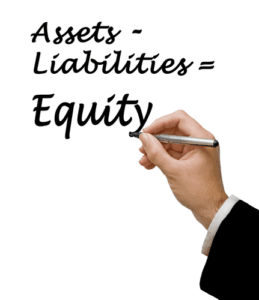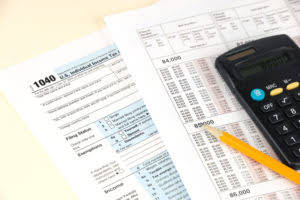Free Online Bookkeeping Course and Training

We walk you through, line by line, each financial statement so that you’ll know exactly what everything means. As a business owner, bookkeeping might not rank high on your list of priorities. However, maintaining accurate financial records is key to your business’s success. The two key accounting systems are cash accounting and accrual accounting.
Get a complete view of your finances with QuickBooks accounting software for small businesses
The skills needed to become a successful bookkeeper are often acquired through working in a career in the finance industry or even assets = liabilities + equity by balancing your personal budgets. Many bookkeepers hone and develop their expertise over time while others opt to complete seminars, read books or take online classes. Typically, bookkeepers aren’t required to have any formal credentials or licenses. To be successful in their work, bookkeepers need to be sticklers for accuracy, and knowledgeable about key financial topics. Usually, the bookkeeper’s work is overseen by either an accountant or the small business owner whose books they are doing. The complexity of a bookkeeping system often depends on the size of the business and the number of transactions completed daily, weekly, and monthly.
Advance your career with an online degree
- Proper planning and scheduling is key since staying on top of records on a weekly or monthly basis will provide a clear overview of an organization’s financial health.
- They stay updated on emerging technologies and recommend suitable solutions to optimize financial operations.
- Bookkeeping is the ongoing recording and organization of the daily financial transactions of a business and is part of a business’s overall accounting processes.
- Simply put, business entities rely on accurate and reliable bookkeeping for both internal and external users.
- Accountants typically earn a bachelor’s degree from an accredited college or university, but their qualifications vary by experience, licenses and certifications.
- This analysis enables management to make informed decisions about resource allocation, investment opportunities, cost management, and business growth strategies.
- Laura is a freelance writer specializing in small business, ecommerce and lifestyle content.
They often interact with clients, colleagues, and stakeholders to gather information, clarify financial matters, and present financial reports. Strong communication skills facilitate clear and concise explanations of financial concepts and enable effective collaboration with other team members or departments. Proficiency in accounting software is crucial for modern bookkeepers and accountants.
What does a bookkeeper do?
A bookkeeper organizes your business’s finances and records every transaction accurately and consistently. They manage the daily finances so you can see the big picture and focus more on running and growing your business. Unlike accounting, bookkeeping zeroes in on the administrative side of a business’s financial past and present. Accounting, on the other hand, utilizes data from bookkeepers and is much more subjective. Business transactions can be recorded by hand in a journal or an Excel spreadsheet.

What career opportunities are available with skills in Accounting and Bookkeeping?
This includes creating invoices, categorising expenses, setting up charts of accounts, and much more. In order to obtain the bookkeeper certification accredited by the NBA, you will need to complete the accounting fundamentals course and pass the uniform bookkeeper certification exam. Accounting uses the information from bookkeepers to analyze finances and produce reports.
What are the advantages of a bookkeeper?
Bookkeepers play a part by keeping records current, so accountants always have the right information for their plans. Accountants analyze the numbers kept by bookkeepers to give clear financial advice. Accountants usually make sure payroll follows tax law and company policies. Accountants sometimes advise on compliance and set up payroll systems so businesses avoid tax penalties or late payments. Employers often require accountants to hold at least a bachelor’s degree for most roles, especially if they want to become certified. Bookkeepers, accountants, and Certified Public Accountants (CPAs) all play different roles in managing finances.
- If you’re searching for accounting software that’s user-friendly, full of smart features, and scales with your business, Quickbooks is a great option.
- A bookkeeper’s main job is to enter all this information accurately into ledgers or bookkeeping software.
- Accountants are responsible for preparing accurate and comprehensive financial statements, including income statements, balance sheets, and cash flow statements.
- They assure stakeholders that financial information is trustworthy and meets the required standards.
- By doing so, you can set your business up for success and have an accurate view of how it’s performing.
The closing process
This enables the business owner to focus on core activities such as business development, strategy, and customer relationships. They advise management on investment decisions, capital structure, cost management, and profitability analysis. They provide insights into the financial implications of business strategies and help drive financial performance. Accountants utilize financial data to bookkeeping services develop forecasts and models that help businesses make informed decisions. They perform financial analysis and scenario planning to assess the potential outcomes of various business strategies. Bookkeeping and auditing are similar in the way that both of them deal with the financial records of the business involved.

The adjusting entries will require a person to determine the amounts and the accounts. Without adjusting entries the accounting software will be producing incomplete, inaccurate, and perhaps misleading financial statements. But what is the difference between the roles of bookkeeping vs. accounting?

Financial Reporting and Analysis
In accounting this means to defer or to delay recognizing certain revenues or expenses on the income statement until a later, more appropriate time. Revenues are deferred to a balance sheet liability account until they are earned in a later period. When the revenues are earned they will be moved from the balance sheet account to revenues on the income statement. Cash and other resources that are expected to turn to cash or to be used up within one year of the balance sheet Catch Up Bookkeeping date. The balance sheet reports the assets, liabilities, and owner’s (stockholders’) equity at a specific point in time, such as December 31.